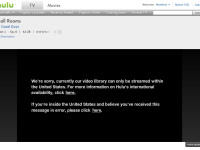The Canadian chapter of the International Institute of Communications held their annual conference in Ottawa this week, headlined on Thursday by back-to-back appearances from Canadian Heritage Minister Melanie Joly (in a question and answer session with Jennifer Ditchburn) and Innovation, Science and Economic Development Minister Navdeep Bains.
Both ministers spoke primarily about their key policy initiative, namely digital cancon (Joly) and innovation (Bains). Joly’s cancon discussion again emphasized the benefits of exports and foreign investment, but she also indicated that all policies are still on the table, including an ISP tax and efforts to bring Internet companies such as Netflix “into the system.” Joly was followed by Bains, who used his speech to sketch out the foundation of his forthcoming innovation strategy. His focus included universal, affordable Internet access and telecom competition (which raises real doubts about whether the government will approve Bell’s proposed purchase of MTS).











